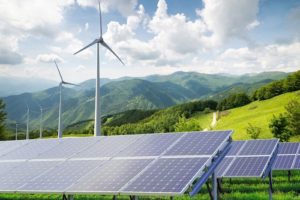Ghana government begins processes for energy transition
 Mr Callistus Nero, a member of the National Energy Transition Committee (NETC), says the government has started stakeholder engagement for the transition from fossil-based fuel to zero carbon.
Mr Callistus Nero, a member of the National Energy Transition Committee (NETC), says the government has started stakeholder engagement for the transition from fossil-based fuel to zero carbon.
He said highlights of the Committee engagement with the stakeholders include securing a stable-based load, energy efficiency, enhancing clean technology through research and development and increasing access to LPG (Liquified Petroleum Gas) to reduce dependency on wood fuel.
Mr Nero said this on Monday at a policy dialogue on the theme: “Energy Transition in Ghana: Our State of Play and Agenda for COP 27.”
It was organised by the Action for Citizens-Led Transformation Africa (ACT Africa) and the Natural Resource Governance Institute (NRGI).
Ghana set up the NETC in December 2021 and launched the Committee in February 2022.
He said Ghana’s conceptualisation of transition had been on adoption of new technologies, rather than getting involved in innovation to capture the value.
Mr Nero stated the country’s readiness to leverage its natural resources to fund a sustainable transition to a low carbon economy to generate more jobs and improve the general wellbeing of the citizenry.
The transition, he stressed, would help in the diversity of energy supply mix, create opportunities to commercialise the renewable energy credit, improve air quality and health and contribute to the reduction of cost of energy in the long term.
However, he said the transition would have some impact including potential threat to energy security, reduced funding for fossil related projects and job losses in the fossil fuel industry.
He said the Committee was working to come out with data on the number of jobs to be created and the number of job losses as far as the transition was concerned.
Mr Nero mentioned geopolitical, financial and technological challenges that would be affected as a result of the transition, calling on the stakeholders to address the bottlenecks for smooth transition.
Ms Nafi Chinery, West Africa Regional Manager, NRGI, said the dialogue was to seek understanding and influence government’s position for the climate conference and explore issues on just transition, financing and its implications for Ghana and beyond.
She said Ghana’s strong economic evolution over the years had created opportunities including poverty reduction, increased access to the national electricity grid and increase in energy consumption.
Mr Abdulkarim, Mohammed, Team Leader, ACT Africa said decarbonization must be at the forefront of business and government agendas, stressing that the COP26 Climate Conference 2021 provided a forum for governments to reaffirm their commitment to limiting global warming to 1.5 C.
These commitments, he stated, required adjustments and unpreceded shifts away from fossil fuels to renewable energy sources like wind and solar and provision of clean, affordable and reliable energy.
Source: GNA
